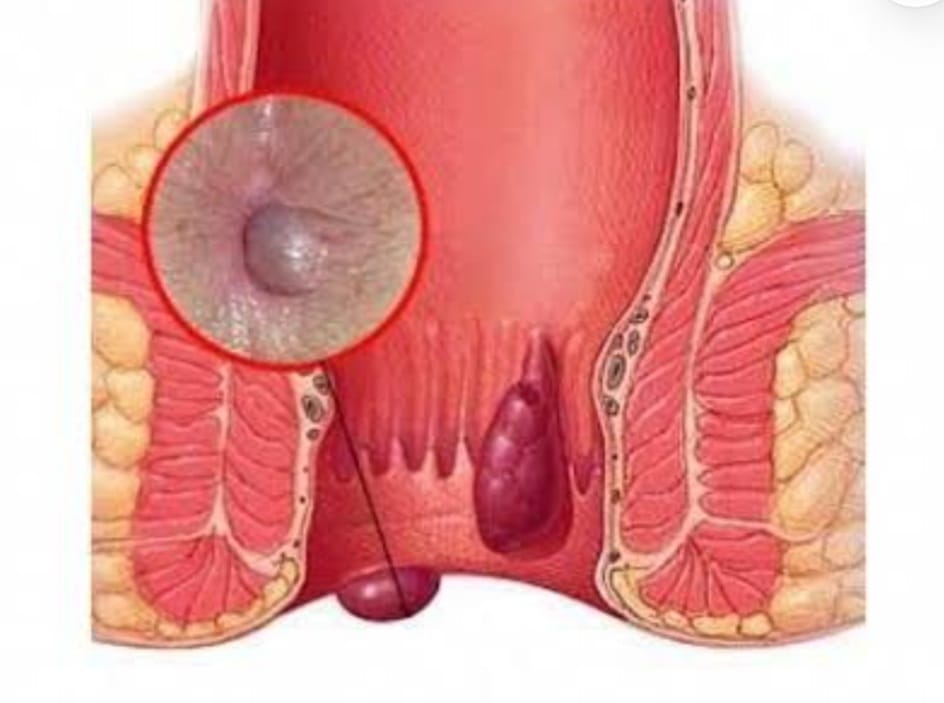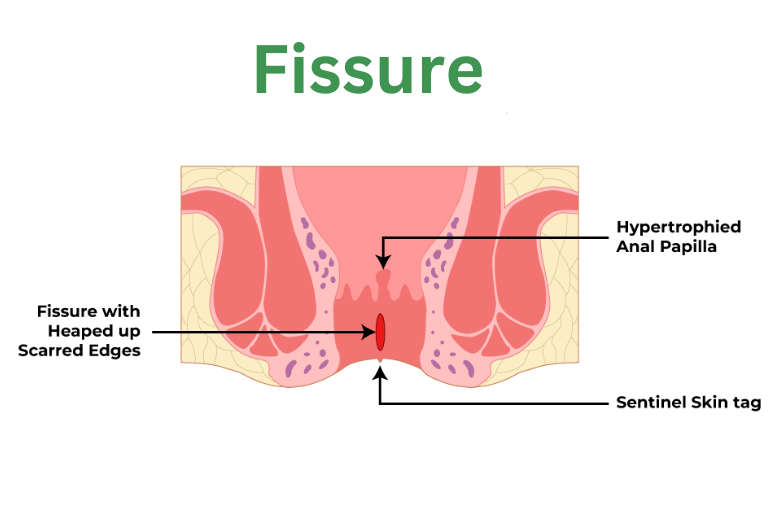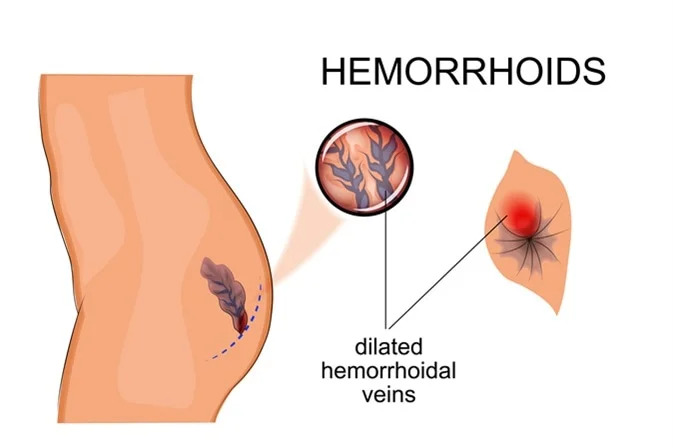Anal fissures are small tears or cuts in the lining of the anus and are often associated with symptoms that can be quite uncomfortable.
- Common symptoms of anal fissures include:
1-Pain: Anal fissures are typically accompanied by severe pain during and after bowel movements. This pain can last for a few hours and may be described as a sharp, burning, or stinging sensation.
2-Bleeding: Bright red blood on toilet paper or in the toilet bowl is a common symptom of anal fissures. The bleeding is usually small in amount but can be alarming.
3-Itching and Discomfort: Anal fissures can cause itching and discomfort around the anal area.
4-Muscle Spasms: Some individuals experience muscle spasms (anal sphincter spasms) in response to the pain, which can further exacerbate the discomfort.
- To diagnose anal fissures, a colorectal surgeon or healthcare provider will typically:
1-Perform a Physical Examination: The doctor will conduct a physical examination of the anal area to look for signs of fissures and other conditions. They may gently separate the buttocks and inspect the area.
2-Review Medical History: Discussing your medical history, including your symptoms, is essential in the diagnostic process.
3-Digital Rectal Examination: A digital rectal examination (DRE) involves the insertion of a gloved, lubricated finger into the rectum to assess the rectal and anal tissues.
4-Anoscopy or Proctoscopy: In some cases, a small, short, tube-like instrument called an anoscope or a proctoscope may be used to provide a closer look at the anal canal.
5-Stool Sample Examination: In some cases, a stool sample may be analyzed to rule out other conditions or infections that could be contributing to symptoms.
If the diagnosis confirms the presence of an anal fissure, treatment options will be discussed based on the severity and duration of the condition. Most anal fissures can be managed with non-surgical treatments, such as dietary changes, fiber supplements, topical medications, and warm sitz baths. However, in cases of chronic or severe fissures, surgery may be considered as a treatment option to promote healing and prevent recurrence.
If you or a loved one has been diagnosed with Anal fissures disease, consult Dr. Chintamani Godbole one of the best Gastrointestinal Doctor in Mumbai.




